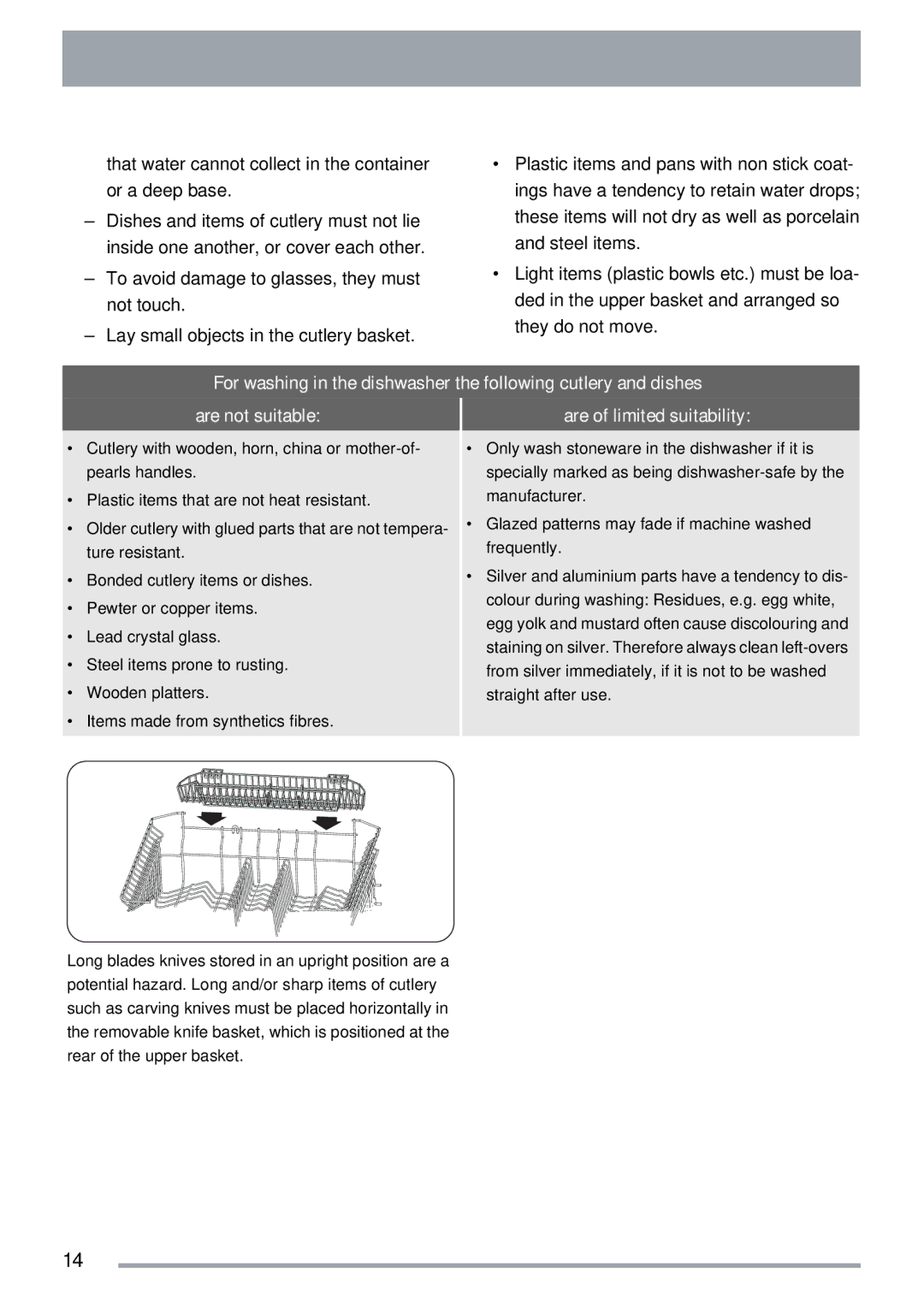
that water cannot collect in the container or a deep base.
–Dishes and items of cutlery must not lie inside one another, or cover each other.
–To avoid damage to glasses, they must not touch.
–Lay small objects in the cutlery basket.
•Plastic items and pans with non stick coat- ings have a tendency to retain water drops; these items will not dry as well as porcelain and steel items.
•Light items (plastic bowls etc.) must be loa- ded in the upper basket and arranged so they do not move.
For washing in the dishwasher the following cutlery and dishes
are not suitable:
•Cutlery with wooden, horn, china or
•Plastic items that are not heat resistant.
•Older cutlery with glued parts that are not tempera- ture resistant.
•Bonded cutlery items or dishes.
•Pewter or copper items.
•Lead crystal glass.
•Steel items prone to rusting.
•Wooden platters.
•Items made from synthetics fibres.
Long blades knives stored in an upright position are a potential hazard. Long and/or sharp items of cutlery such as carving knives must be placed horizontally in the removable knife basket, which is positioned at the rear of the upper basket.
are of limited suitability:
•Only wash stoneware in the dishwasher if it is specially marked as being
•Glazed patterns may fade if machine washed frequently.
•Silver and aluminium parts have a tendency to dis- colour during washing: Residues, e.g. egg white, egg yolk and mustard often cause discolouring and staining on silver. Therefore always clean
14
